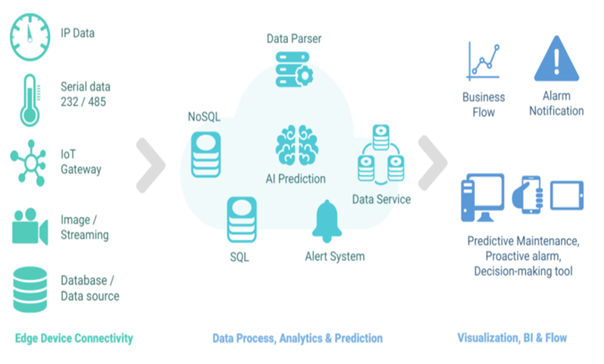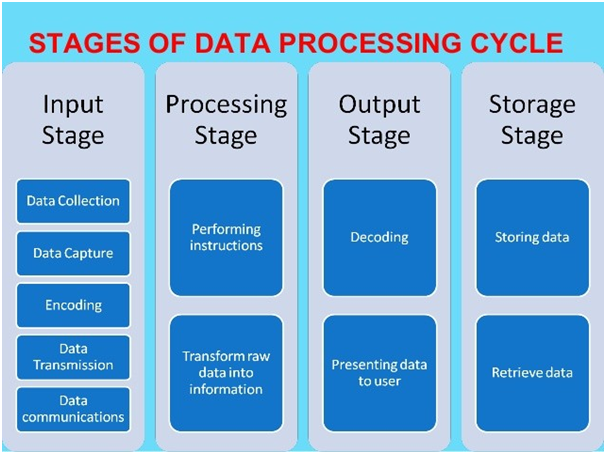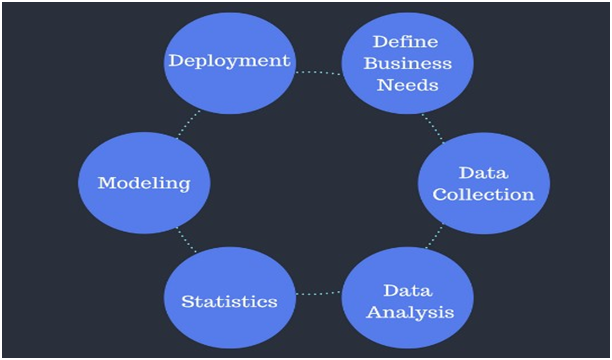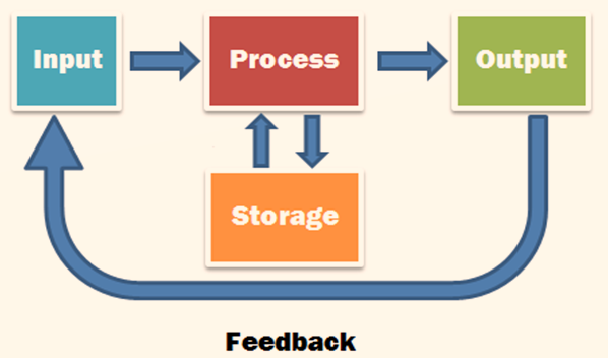Data has been the core of businesses for a long time. It has helped organizations at various operational and decisive stages to overcome challenges and develop critical strategies. Hitherto, the techniques and processes for obtaining data were difficult. As a result, only a few business giants could obtain it. Data processing was a challenging task. Furthermore, also lacked the relevant interpretation that could be put to use by marketers. Market research was widely unknown to small and medium businesses. Moreover, only those organizations that were able to drive effective insights through data processing crushed the market competition.
Jump to Section
Data Processing for contemporary businesses
In reference to modern times, businesses barely possess a lack of data. They are flooded with data. But they face trouble drawing effective insights out of it. Many businesses these days use data processing to support their decisions rather than to form them. Moreover, it is in one way, undermining the potential of data and restricting businesses to reach their full potential.
The power of data quite drove the Scottish writer and poet Andrew Lan. Furthermore, in the year 1910, he said that he similarly used the data as a blind man uses a lamp post. It was for support instead of illumination. Organizations now, do not uncover the complete potential of data processing and use it as the famous Andrew Lang.
Data processing has the immense power to drive business decisions and change their gameplay in the market. You might be sitting on a pile of public data. However, that is of no use to your business until you can drive insights out of it. Furthermore, translating raw data is a crucial factor in drawing insights and driving decisions for a business.
Today, businesses are using big data and analytics to translate raw data into insightful information. And, these tools are transforming the business and redesigning its core processes. Here are a few effective strategies that will help businesses draw effective insights with data processing-
Utilizing Data Processing for your business
Below is how to utilize data processing for your business.
Start by defining a plan
The first step while drawing insights with data processing is to construct a plan on the paper. Figure out a plan of action and mention all the key factors that you want from the translating data. Furthermore, write down the overall ideas for your company and suggest the desirable outcomes from them.
The next step is to ask the relevant questions. These questions should be measurable, concise, and clear. For example, if your business has a specific problem or situation, ask statistical questions that the concerned data can answer. Let’s say that your product reach has degraded in the market; you must ask questions such as:
- “Am I reaching out to all of my target customers?” or
- “Should I expand my demographics?” etc.
Know how to source your data: Set your basic plan or set of goals for your organization. Now, the next step is to break them down into relevant factors. These can be:
Deciding your measurable goals
To begin the conceptualization of data for your business, you must start by measuring your goals. In most situations, organizations are already sitting on the pile of data. But, they don’t know how to use it. You can use various approaches to understand and filter out goals that you need to answer through data processing. At this point, one must get as creative as one can to work on their measurable goals.
For example, both the manager and operational staff need to do their homework. It can be in the ways that they can utilize data effectively for their organization. On the one hand, the operational staff must understand how to use the weekly or monthly customer statistics. The managers must be creative about new sources of data and their relevant potential for the business.
To start with, you can use some practices to churn ideas about building an approach towards the data. These can be:
- Sorting: It refers to ranking the elements by their importance towards the business.
- Filtering: Filtering refers to narrowing down everything else only to the element of interest.
- Segmenting: This refers to segmenting or forming relevant chunks of customers based on their personas and other factors.
- Visualizing: It includes utilizing imagery and visuals to utilize the data.
Choosing tools to measure these goals
Choosing the relevant tools is one of the most crucial decisions in processing data for your business. You can use the necessary IT support to start with the foundation of translating data. It becomes quite difficult to make use of the unstructured data. Therefore, one must work on quickly identifying and working with the most interesting or relevant data for the business. Furthermore, a cleanup process that you can deploy can merge the rest of the data. It can then associate itself with useful pieces.
Choose tools to measure your goals or drive insights for your business. Before that, you must ask the relevant questions concerning this step. Not only does it help in forming more comprehensive and timely insights, but also backs them up. Points to keep in mind in this phase of data processing are:
- The timeframe for the insights
- Relevant costs
- Units of measure
- Factors to be included
Data collection and optimization
Data collection is a crucial step in driving insights for the business. It forms the basis of crafting insights that are crucial to businesses. On the other hand optimization of business processes ensures that they stay relevant towards the nature of data. Often people build business models that are not practical and optimized for the outcomes. Therefore, any business model that aims at data processing must start with identifying an opportunity or improvement goal in mind. It is also significant to remember that the model should not exhaust all of the company’s capabilities. Instead, it should be less complex and focus on improving the nature of business goals. When collecting data:
- It is important to determine the data that can be collected from the databases and then from external sources.
- A strong and understandable file naming convention must be adopted so that most of the members can easily collaborate.
Bring life to data
Unless you bring the data back to life, it can barely be used to fulfill the needs of businesses. Converting the data into a presentable form can help in deriving actionable information or insights. Graphical summaries can help in uncovering various pieces of information that can prove beneficial to the companies. The real power of interpretation of data lies in displaying unexpected findings in a clear and crisp manner. Furthermore, various tools and practices in the market can help in translating raw data into relevant insights.
Measures towards achieving Effective Insights through Data Processing
To invoke compelling insights for your business-
Follow trends
It is best advised to follow trends rather than particular insight points of data. It helps in finding out the changing patterns and most importantly a direction to which the statistics are pointing. This approach provides an in-depth understanding of the market.
Focus on aesthetics
Presenting the beautiful analytical charts opens the mind and presents various horizons for interpretation.
Take note of the time range
Time ranges manifest a trend in market analysis especially customer behavior, buying patterns, etc. You can use ranges to monitor trends such as over a week, month, quarter, etc.
Take a skeptical point of view
Monitor data from a skeptical point of view. Having just one angle towards data processing might leave you in a biased situation. For example, you can try plotting the same data over different platforms or in different forms. It will ensure a holistic view of the insights and a comprehensive understanding. Furthermore, you can present your story more accurately.
Deploy a team
Monitoring data must not be one man’s job. Make sure you have an appropriate team to monitor the data from different perspectives. It will help in generating relevancy and actionable insights.
Look for relationships
You can only draw effective insights if there are strong relationships. The most powerful insights demonstrate strong relationships between variables or correlations. It can be beneficial to statisticians and data interpreters.
Business growth with Data Processing
Data processing can help in business growth in a variety of ways. Recent market statistics suggest that businesses experienced as much as 30 percent growth with the assistance of an in-house data processing team.
- Better service-level performance: Data processing can assist in generating predictive behavioral analysis for improved functioning at the service levels.
- Cost reductions: Data processing measures can reduce business costs by analyzing staffing level predictions and defining the operation funnel accordingly.
- Improved management: Data processing can help in improved business management at various levels by generating thoughtful insights at various levels.
These can be at:
- Product management by providing insights into the right products to focus on at the right time.
- Supplier management by improving product quality perspective.
Conclusion
The entire framework for data processing is extensive and can help businesses reap huge benefits for their business. It can provide them with a niche in the market and propel organizations. Effective insights depend on the nature of translation and comprehensive representation of the data. It is not surprising to find its similarity to an architect’s blueprints. Furthermore, you are free to approach it from as many creative perspectives.
- Business Intelligence Vs Data Analytics: What’s the Difference? - December 10, 2020
- Effective Ways Data Analytics Helps Improve Business Growth - July 28, 2020
- How the Automotive Industry is Benefitting From Web Scraping - July 23, 2020





